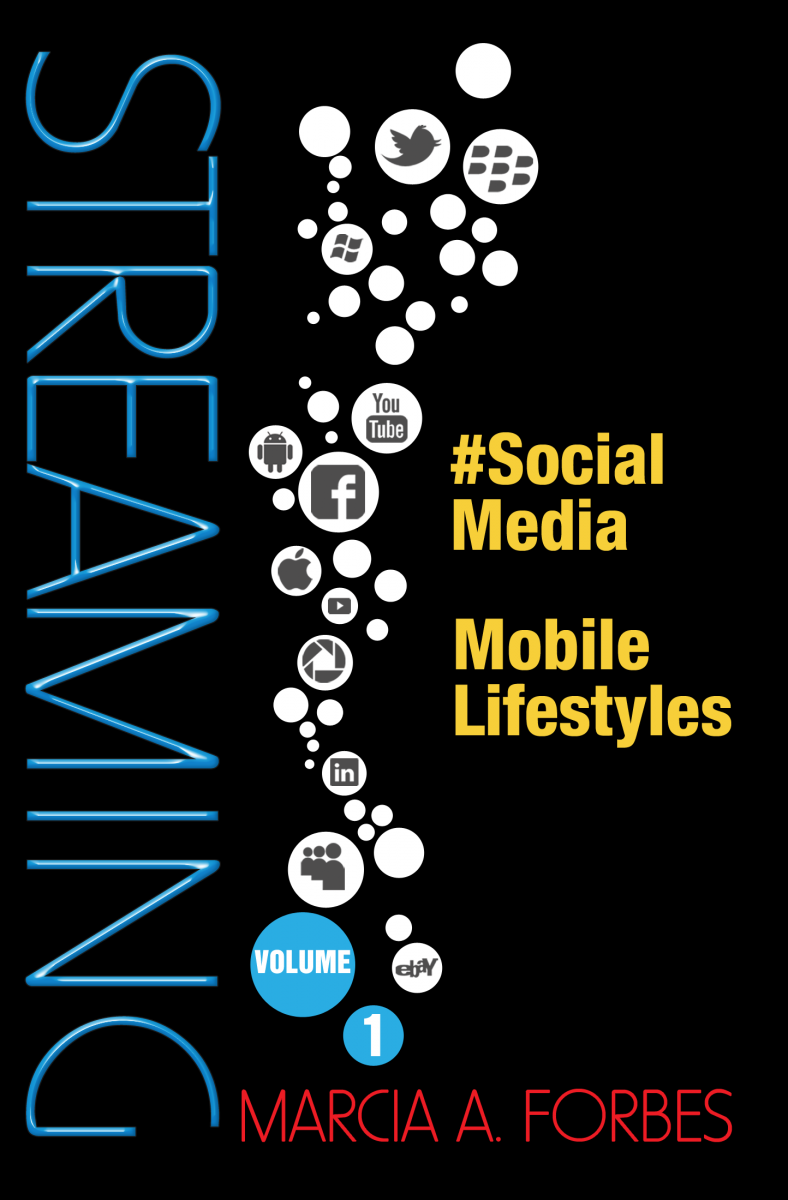Tweeps & Friends re Internet Access Costs
Tweeps & Friends re Internet Access Costs
A few days ago, in my usual way of using Twitter as a sounding board....in short order 25 tweeps responded via 50 tweets/email. Tweeps love a good chat! Not to be left behind, Facebook Friends also joined in. It was all about the cost of internet access in Jamaica and the need to educate people re the value of the internet. Read to the end to see important lessons I learnt from this exercise.
Tweets re How to Increase Internet Access to Households in Jamaica
1) @corvedacosta lower rates - internet access can be lower
2) @peakwritingCEO Paul Thompson Are the findings publicly available? Deeper analysis of the findings are required to better understand policy implications.
3) @mamcnaughton policy or development implications?
4) @top5jamaica Sandor Panton too much to say in 140 chars or less :) .. Cheaper internet is 1 step that's happening
5) @top5jamaica Sandor Panton but govt. Needs policies that built on the business & educational power of internet
6) @anonemouz Carlito Chippy cheaper net is a factor being addressed, but media literacy training 4 parents key.Most dont see NEED 4 another utility bill
7) @Dejasmum YaniqueSimone it boils down to affordability
8) @productionboxja Laura McDonald in regards to internet access, a lot of households in Jamaica still don't even have running water, Lets work in that first
9) @cucumberjuice Alice Clare yes ma'am let me think a bit ---{And she did!! Sent a looong, thoughtful email}.
10) @Gordonswaby Accessability and affordability. But I also think there should be free workshops exposing people to the usefulness of the
11) @GordonSwaby Internet. Because if you don't value it. Then you won't pay for it.{Note this comment in context of 24% in UWI survey who said no need for internet).
12) @stannyha Stanford Think this initiative could be modified 2 suit Ja? I do. one.laptop.org
13) @stannyha Stanford In that case, let d Govt divert some $ frm the lottery to ed instd of just sports 2 finance hotspots in dprsd areas
14) @daynanicole access to internet is only 1/2 of the equation. There are many unable to afford access to computers.
15) @R0ry_ cheaper hardware. Higher more wireless bandwith in rural areas
16) @Gordonswaby I don't remember the percentage, but from the UWI study a good percentage of people don't see value in it.
17) @Gordonswaby Believe it or not some people believe that Google and Facebook are the internet
18) @Gordonswaby And those that think that don't always find value in the 2. So that's where the workshops would come in
19) @Gordonswaby Then you have those who can afford it, but don't see value in it.
20) @ingridriley Make the device more accessible I.e cheaper, free wifi hotspots, more internet cafes...
21) @Gordonswaby If I can think of anything else I'll let you know
22) @cucumberjuice Alice Clare I've emailed you Dr. M. Was too much for Twitter.
23) @yaadinfo Yaadinfo Jamaica (Reliable) wireless
24) @daynanicole daynanicole agree training on the micro level imp. Add more macro level usage of/incentives on internet services will add value. cont'd
25) @AstleyHenry What about touting the entrepreneurial potential of the internet? The net is a productive asset, not just a consumer good
26) @shirleyretreat Implement internet use & computer classes in schools at all levels. e-Learning is powerful, if done correctly
27) @shirleyretreat Awareness programme via different methods of media is a must
28) @linniemc Lyndsey McDonnough Barriers to entry : Cost of computer, cost of the service, process to get the service, smart phones that have internet.. People still not computer literate
29) @davidmullings Got a document I am reviewing that is separate and not sounding as bad
30) @marciaforbes To @davidmullings Always the issue is comparing apples with apples. Data coll method important when comparing. I've seen many diff stats :(
31) @davidmullings Exactly. I don't think there is any ICT catastrophe. No doubt we do need to speed up access at home and comp literacy
32) @TheRealLaing ~ gov. Should set up a subsidized wifi net in the inner city and in dense low income rural areas 1/2
33) @TheRealLaing - did they incorporate variables such wap phone smart phones and usb modems ?
34) @TheRealLaing ~ eventually incorp. Cheap cctv in high prone areas...
35) @davidmullings The GG is launching his pet project in a few weeks. Hint: Has to do with wi-fi. I say no more
36) @eddieanne Heather Anne RT @Gordonswaby: Trust me if Maslow was still alive he'd have a revised hierarchy of needs. The internet would be on it.
37) @utenjm Dmitri Dawkins Jamaicans find cost the big issue, cost of hardware and service
38) @utenjm Dmitri Dawkins if the gct cannot be dropped on computers, special finance/lease options need to be made available for ppl to afford one
39) @mamcnaughton Matthew McNaughton I think a big part of it is culture and priorities. I was in bleachers for jamaican...
40) @mamcnaughton and there were so many people with blackberry and other smart phones. I was bit shocked
41) @mamcnaughton I'm not trying to stereotype but most Jamaicans don't spend like we live in a dev country
42) @utenjm Dmitri Dawkins @mamcnaughton @marciaforbes @davidmullings @top5jamaica if ppl rnt paying their light bill how can they pay for net?
43) @davidmullings Many people pay their light bill. Some 550,000 residential customers pay light bills.
44) @doyenwilliams Reality is household internet = internet devices + "connectivity" | "connectivity" can be regulated via policy... (1 of abt 2)
45) @doyenwilliams ...but internet devices r ruled by principles of capitalism > best long term solution is manu. locally (2 of abt 3)
46) @doyenwilliams short/med term wd b 2 look at OLPC and other low-scale internet-enabled devices rather than computers; culture wudnt allow tho
47) @doyenwilliams OLPC = One Laptop Per Child > a programme to give even the poorest children computers > check it out @ http://www.laptop.org
48) @doyenwilliams the "nuttin good nuh cheap" dynamic + low cost computing = open source... not Microsoft-based systems that ppl used to
49) @AinzyM Ainsworth Morris @marciaforbes The internet has made this generation of youths more foolish than the previous generation.
Don't miss @cucumberjuice's emailed response which comes later.
Via Facebook
1) Jane Branding The private sector should donate to local communities to existing well respected local community org.s eg. Trench Town Reading Centre
Marcia Forbes Thanks for your comment. Keep the ideas coming. Deep review of Mona School of Business findings re ICT indicators next week. Pulling thoughts together.
2) Jane Branding Depending on the amount they donate they could in return be given advertising branding on walls at that centre.
3) Karentandehdeh Smith Give away sum computers or let ppl win computers then!!
Marcia Forbes What amount would qualify for branding? Anyway, remember we talking about internet in households
4) Karentandehdeh Smith Bwoy miss forbes tha one yah sticky though cause some ppl can't afford it
Marcia Forbes Yes, cost is an issue.
5) Shirley Lingard do we really need to increase it? considering the addictions with kids etc? just a reflection am sharing
6) Jane Branding
I'm suggesting a tiered roll out. 1. Corporations (eg JN or Digicel etc) could donate a series of 'community' machines to be placed throughout for free community use in return they can 'brand' that centre. Tier 2. Service providers for in... (unable to cut & paste remainder in this doc)
Marcia Forbes Thanks for your sharing your views. I'm making notes for review of ICT indicators, UWI next week.
7) Emma Caroline Lewis Marcia, a lot of people use the Internet at work and at public libraries (I have seen people lining up for it), community centers, school computer labs etc. ALSO have you considered how many people use mobile applications? I know there are young people who rarely actually use Facebook etc on their home computer or laptop - it's all mobile.
Marcia Forbes Yes, Emma, aware re access outside of home but focussing on how to increase in households. UWI's survey showed that only 14% who used internet did so via cell. I'll be participating in conference to interrogate the findings further.
8) Emma Caroline Lewis Yes Marcia but the 14% who access internet via cell (that must be all blackberry users I guess) - do they use it instead of having a computer at home? I am just thinking that this could explain why there is low internet access at home - people get it elsewhere.
Marcia Forbes Most with BB would very likely have a computer. Over 30% with no internet at home spoke re high cost, while ~24% didn't see need for internet (UWI). From my own research >90% of inner city youths spoke extensively re value of net in response to ? "What does the internet mean to you?"
9) Chris Daley this percentage could accelerate with the promotion of mobile internet given the high penetration of mobile devices. the cost of entry is much lower in the mobile space
Marcia Forbes Yes, Chris that is a recognized area for attention. Thanks.
10) Ramon Lee if u ask me some of we jamaican love freeness so wi going even wast money to a computer muchless to even have internet lol so that is how the rest of the missing % come in lol
Marcia Forbes I don't have full UWI data set but from my own research there is GREAT demand for internet access at home by 17 - 19 year olds. Some see it as basic human right.
11) Rowan Wade From where I sit there are two major issues at play here, a drought in the financial reservoir of many people who would want to purchase a laptop or desktop and the other is the illiteracy rate which is higher than most people want to admit...
Marcia Forbes Thanks Rohan.
Now @cucumberjuice's very thoughtful email response.
Hey Dr. M --
Here are my initial thoughts:
- affordability + availability: internet access needs to be affordable & available...as with many things a lower cost makes things more attractive to people & in Ja where so many basic needs are still lacking (e.g. today I see the installation of a new irrigation system & a few years ago the big hullabaloo over PIT LATRINES being installed in a community). So people need to be able to have basic human needs + the ability to feed families; internet access will be more attractive when folks can justify having it.
- education: I was exposed to computers before I was 10 & internet by 1st form. I became familiar and therefore wasn't afraid of it. Educating households -- how to use a computer, building comfort & familiarity -- are important. Associated with this is info about the different devices available; blackberries are the ONLY thing out there. A way to build exposure that also has another very important benefit (I think) is to have computer & internet access in public libraries. Revive libraries (I get the DISTINCT) impression that they're rapidly deteriorating & severely underused. Despite all the eReaders, children (and some adults too) still need to understand the value of a BOOK. So promote libraries, reading, literacy + give exposure to internet so that households who can't afford now will see what it's like and mark it on their "must get" list. Parents also need to know what's out there for them to protect their children from the predators out there. For eg when I first started using the net I was very open on the net. My mother trusted me & my judgment enough for me to use it with little supervision BUT she knew just enough to know how to limit my acces: something as simple as changing a password. Now with my sister (she's 10 going on 25) she's a little more perplexed. Children pick up on how to use a computer so much quicker but parents don't need to be clueless. A simple program will help, and unfortunately this is VERY needed in Ja (1) because we're so small and (2) folks tend to lower their guard on the net. Children are vulnerable so they too need guidance. So educate about the tech available, familiarize with the tech + show parents how to protect their children & how to talk to their children.
- use in schools: I applaud the use of tech in schools above & beyond IT classes. When I moved to the states for boarding school one of the first things I got from the school was a laptop. Projectors were used in classes. But they had a solid curriculum base on which to stand all of this. I'm sure you know that Ja's education system -- from teacher training to curriculum development to addressing & fixing the patois/English problem -- needs fixing. Tech can be used here and not as a show off thing but to truly supplement the learning process + address some gaps. Intro internet use here, show it is a valuable & feasible learning aid will = in my opinion, increase the use of internet in households. Once parents see children benefiting they'll be hard pressed to deny the same tools at home. Connected to this is spreading info about what
- change in mindset: somewhat linked to education but I think a failure of the GOJ & Ja's tech community has been how tech is framed. Tech is not the savior of Jamaica. But it is a very valuable tool for improving the country & achieving our goals. So getting a computer at home doesn't mean yea man mi pickeny can read better now but it does mean that there's a tool now available for us to address issues like slow reading or poor math skills. Conversely the internet is FUN! Let's show people the fun side & the innovative side. Again tech is not the savior but it is a tool.
Ok that's all that comes to mind on first pass through my mind. I hope itsk not too long & is useful. If I think of anything else I'll let you know!
Lessons Learnt
1) That Social Networks can be used very productively -- They are not just about chat & sex!!! More Jamaicans need to learn this.
2) That posting the tweets above without my responses robs the reader of the interchange between tweeps and me. Omitting all those copied on each tweet (done to help non-tweeps understand better who said what) also robs some of the texture and flavour of the exchange. Many tweeps copied many others on their responses thereby pulling others into the conversation.
3) That the question of internet access and related costs resonates with youths and they are deeply concerned. @gordonswaby and @doyenwilliams gave solid evidence of this based on their number of tweets.
4) That @davidmullings always has a scoop.
5) That @cucumberjuice has a fine mind and being an 'adopted daughter' on twitter always goes the extra mile for me. Thanks Cucs :-)
6) That Twitter and Facebook are really quite different. For exchange of ideas in a conversational manner, Twitter wins hands down!!


